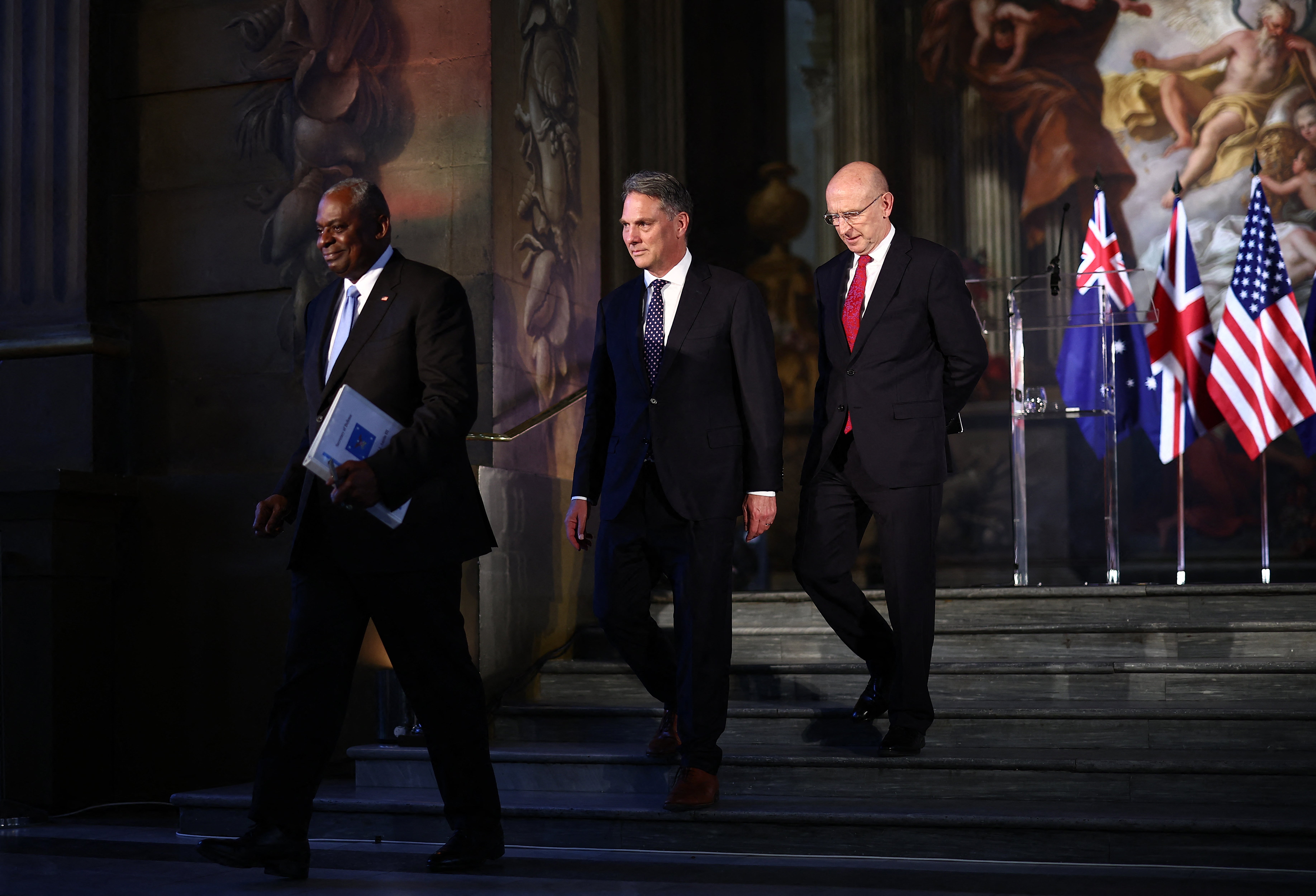Australia has rejected as “propaganda” Moscow’s assertions that it had “no cards” to play in a regional military cooperation between Russia and Indonesia.
In a pointed letter published by The Jakarta Post, Russia’s ambassador to Indonesia, Sergei Tolchenov, dismissed Australia’s concerns over reports that Moscow had requested access to a military airbase in Indonesia’s Papua province.
Canberra's “national interests cannot extend to the territory of neighbouring sovereign states that pursue active and independent policies”, Mr Tolchenov wrote, before concluding with a barbed reference to former US president Donald Trump’s remarks to Ukraine’s leader Volodymyr Zelensky: “You have no cards.”
Mr Tolchenov accused Australian leaders of exploiting the issue for political gain during the country’s federal election campaign, claiming both major parties were “heating up the situation” and “playing the so-called ‘Russian card’”.
He also questioned why Australians would be concerned about military activity more than 1,300km away, and said Australia’s own alliance with the US – including the Aukus security pact and the presence of US submarines and missiles – posed a more pressing regional threat.

The controversy follows a report by defence publication Janes last week that Russia had formally requested permission to base military aircraft at Biak, an Indonesian island north of Darwin. While Indonesian officials have rejected the idea of any foreign military base, they have not publicly confirmed whether such a request was made. Russia has also declined to clarify whether it submitted an official proposal.
Australian prime minister Anthony Albanese dismissed the Russian letter as authoritarian “propaganda” and reiterated his strong stance against Moscow. “I’m anti-Russia,” Mr Albanese said during a press conference on Monday. “Russia wants propaganda to be promoted by Australians. Of course, they want propaganda, and Russia engages in that.”
Mr Albanese also avoided directly answering whether his government had received intelligence on a Russian approach to Indonesia, instead insisting he would not assist the spread of Russian messaging.
“I have no wish to help promote Russia’s propaganda messages and I would suggest that that is not in Australia’s national interest either,” he said.
The government’s handling of the issue has been criticised by opposition leader Peter Dutton, who accused Mr Albanese of avoiding scrutiny. “The prime minister again has ducked and weaved on this issue today,” said Mr Dutton. “I just wish this prime minister could be open and honest with the Australian people.”
The opposition has called for a national security briefing on the matter, claiming ministers have been inconsistent and evasive. Coalition frontbencher David Coleman said Labor was trying to “avoid scrutiny” and “doesn’t want to come clean” on what it knows.
Labor senator Murray Watt added to the confusion on Sunday by saying there was “no proposal from Russia to have a base anywhere in Indonesia”, comparing opposition concerns to asking for a briefing on the “Loch Ness monster”. But when pressed to confirm that claim on Monday, he declined to repeat it.
Indonesian officials have reiterated there is no basis for the rumour. Defence minister Prabowo Subianto told Australian defence minister Richard Marles that reports of Russian aircraft operating from Indonesia were “simply not true”, reported 9 News. Indonesian defence ministry spokesperson Frega Wenas similarly told Reuters the reports were incorrect.
Mr Marles said Australia remains confident in its close security relationship with Indonesia, which is formalised through the Lombok Treaty and the Defence Cooperation Agreement. Australia conducts around 20 joint military exercises with Indonesia each year, and Mr Albanese described the relationship as having “never been stronger”.
“Indonesia is a sovereign nation,” the prime minister said. “So we continue to put our argument about our own case and our own relationship with Indonesia. Indonesia and Russia have historically had relations that are different from Australia’s.”
A timeline of the life of Pope Francis: From Buenos Aires to Rome
Francis changed church policy on the death penalty and nuclear weapons but upheld it on abortion
Ukraine war live: Putin launches massive air raid as Easter truce ends
Nine-year-old dies at popular Australian holiday over Easter weekend
Hundreds of koalas are being shot dead from helicopters in Australian wildlife cull







